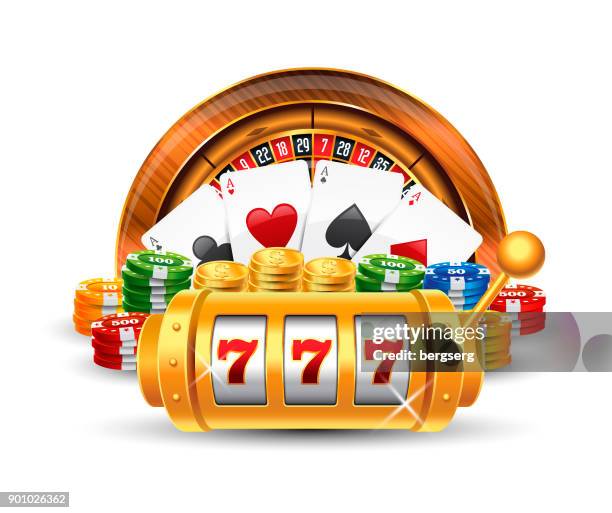Understanding the Signs: How to Recognize Gambling Addiction in Pakistani Players
Gambling addiction is a growing concern in Pakistan, impacting individuals, families, and communities. With the rise of online gambling platforms such as How to Recognize Gambling Addiction in Pakistani Players baji999 Login, recognizing the signs and understanding the implications of gambling addiction has become increasingly important. This article aims to shed light on how to identify gambling addiction among Pakistani players, the characteristics that define it, and the steps that can be taken to address the problem.
What is Gambling Addiction?
Gambling addiction, or compulsive gambling, is a behavioral disorder characterized by an uncontrollable urge to gamble despite the negative consequences. It is not merely a failure of willpower; scientific studies indicate that it can change brain chemistry, leading to destructive behaviors. In Pakistan, where social norms may restrict open discussions around the issue, many players may find it challenging to recognize that they or someone they know has developed an addiction.
Signs of Gambling Addiction
Identifying gambling addiction can be tricky, but several signs may indicate a problem:
- Increased Time Spent Gambling: A noticeable increase in the amount of time spent gambling—whether online or in-person—can be a warning sign. Individuals may start prioritizing gambling over other activities or responsibilities.
- Chasing Losses: Many gamblers try to recover their losses by gambling more. This behavior, known as “chasing,” often leads to even greater financial troubles.
- Neglecting Responsibilities: An addicted gambler may neglect work, schooling, or family obligations. Their focus shifts solely to gambling, leading to detrimental effects on their relationships and professional life.
- Secrecy and Deception: Those struggling with gambling addiction may hide their activities from friends and family, often lying about their whereabouts and the amount of money they are spending.
- Emotional Distress: Feelings of anxiety, depression, or irritability can arise when gambling isn’t an option. An addicted individual may feel a rush while gambling but experience intense lows when away from it.
- Financial Problems: Frequent money shortages, borrowing from family or friends, or running up debts are clear indicators of a gambling issue. Addicted players might express a need for money under false pretenses.
- Withdrawal Symptoms: Just like substance addicts, those addicted to gambling can experience withdrawal symptoms, including restlessness and irritability, when they are not gambling.
Understanding the Cultural Context in Pakistan
In Pakistan, where gambling is often viewed through a negative lens, cultural stigmas may prevent individuals from seeking help. Traditional beliefs may discourage openly addressing gambling as a mental health issue. This stigma can exacerbate the problem, leading to isolation and worsening addiction.

Understanding this cultural context is crucial as it informs how we approach discussions about gambling addiction. Community awareness campaigns that are sensitive to cultural norms can help reduce stigma and encourage those affected to seek assistance.
Consequences of Gambling Addiction
The repercussions of gambling addiction can be dire:
- Financial Ruin: Significant financial losses can result from compulsive gambling, leading to bankruptcy and inability to meet basic needs.
- Mental Health Issues: Many addicted gamblers endure mental health issues such as depression, anxiety, and even suicidal thoughts due to their circumstances.
- Relationship Strain: Gambling addiction can lead to broken relationships with family and friends, as trust erodes and communication breaks down.
- Legal Trouble: In severe cases, gamblers may resort to illegal activities, such as theft or fraud, to fund their addiction.
Seeking Help for Gambling Addiction
If you suspect that you or someone you know is suffering from gambling addiction, it is essential to seek help. Here are some steps to take:
- Talk to Someone: Open communication is vital. Discuss your concerns with a trusted friend or family member who can provide support and understanding.
- Professional Help: Consulting a mental health professional or a gambling addiction specialist can provide tailored strategies for recovery.
- Support Groups: Joining groups such as Gamblers Anonymous can connect individuals with others experiencing similar challenges and provide them with a network of support and shared experiences.
- Limit Access: If online gambling is the issue, consider blocking access to gambling sites or seeking platforms that promote responsible gambling.
Conclusion
Gambling addiction is a significant issue that affects many Pakistani players, yet it often goes unrecognized due to cultural stigmas. Understanding the signs of gambling addiction is the first step toward addressing the problem. By raising awareness, providing education, and promoting open dialogues, we can foster an environment that encourages recovery and support.


Leave A Comment